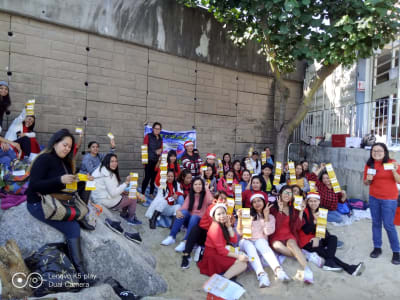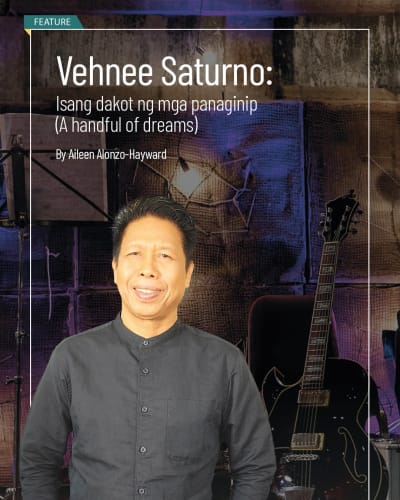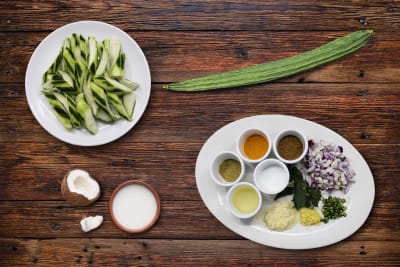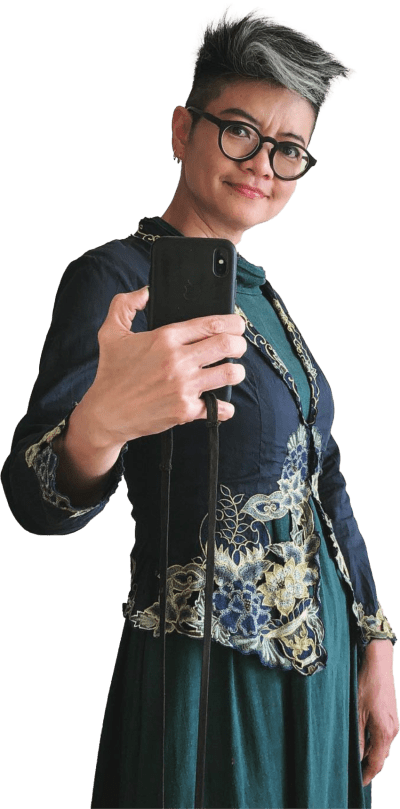By Sanna Kontinen
WHEN YOU FIRST enter Chungking Mansions’ lively maze of shops and restaurants, it’s easy to feel a little overwhelmed by the cacophony of sounds and scents, as dozens of languages bounce down bustling alleyways and tantalising scents drifting from open kitchens flavour the air.
Turning 60 this month, Chungking Mansions has a reputation that precedes itself – as a renowned meeting point for dozens of different cultures and nationalities. As the sizzling cultural hot pot once described by Time as the “best example of globalisation in action”. As a place to chow down on hearty, affordable South Asian street food. As home to dozens of guesthouses offering some of the cheapest beds in town. As a “mini United Nations”, in the words of Jeffrey Andrews, who organises weekly cultural diversity tours around the building. And yes, the legendary Tsim Sha Tsui landmark also still carries a slightly dubious renown as an underworld hotbed for after hours naughtiness – although that reputation is changing fast. “You can’t deny that after 1 or 2am it turns into another world,” says Andrews. “But go to Mong Kok or Wan Chai at that time – you get all the same.”
In short, Chungking Mansions is lots of things to lots of different people. Although some might find the relentless hustle and bustle exhausting, this is exactly what Akashdeep Gill appreciates most about the sprawling five tower compound. “What makes Chungking Mansions special is it never sleeps,” says the 24-year-old manager of the third-floor restaurant The Delhi Club. “Twenty four hours a day there is something going on and if you are in Chungking the vibe is exactly like a busy market in Delhi. Chungking Mansions to me is my heritage in Hong Kong. It allows me to show locals and expats what India is without travelling.”
To Ahmad, a friendly 50-something shop owner who everyone calls “uncle”, it’s a necessary source of income; he founded the poky ground-floor Buraq Enterprises stall some two decades ago. “It’s now safer and cleaner, 20 years ago the floor was all broken, and there was no ventilation,” he remembers. After initially starting off selling scarves, and as the times changed, so did his clientele – now you can purchase colourful Islamic prayer mats, intricate Arabic skullcaps and even traditional chewing sticks (miswaks). “Ten to 15 years ago there was only one place to buy things and everyone came here. Nobody knew of Sham Shui Po,” he adds mournfully, while still doing a tidy trade in Buraq’s most popular item, several varieties of mouthwatering dates.
"What makes Chungking Mansions special is it never sleeps – 24 hours a day there is something going on... the vibe is exactly like a busy market in Delhi"
– Akashdeep Gill, The Delhi Club
Chungking’s reputation as the place you can buy anything has spread so far and wide that even Floyd Mayweather – the legendary American boxer who claims to be worth more than US$1 billion – sought out the Nathan Road complex when passing through town (“on his way to buy a panda in China”, according to Andrews). His destination? Hip Hop Linc, a fashion business founded in 2009. “Back then Hong Kong had no hip-hop culture and it was not possible to find these trends anywhere,” remembers Ghanaian founder Hector, 44, before whipping out a selfie of him and Mayweather. “I think I was the first one to sell these clothes in the city.”
Indeed, at one point experts estimated 20% of all the mobile phones in sub-Saharan Africa passed through the building. But trade is far from the whole story. Most casual visitors come to Chungking Mansions to sample authentic specialities from the array of ethnic eateries. “There are a lot of Indian restaurants located in TST, but Chungking Mansions is [most] well known to most local people,” says Meenakshi from ground-floor restaurant Karaikudi Akka.
Kulbir, whose Indian supermarket New Delhi Store, East West Spirits Limited has been based in Chungking Mansions since the 80s, finds his income in supplying the dozens of fast-food take-outs and licenced “clubs” with imported spices and ingredients. “The restaurants are affordable and the prices much cheaper than outside for food and anything else you want,” says the 55-year-old sagely.
According to local lore, Chungking’s first officially licenced sit down restaurant was Swagat, founded by two brothers in 1987. Today Jacky – the more gregarious of the pair behind the venture, nicknamed the “Li Kashing of Chungking Mansions” – proudly tells us the butter chicken at sister restaurant Moti Palace was once rated the best in the city by Google users.
"Does this building have conflicts? Yes, inevitably. But it’s actually the most hospitable place ever. A place where someone will stop and offer you a cup of tea and have a chat. How often does that happen to you in Hong Kong?
– Jeffrey Andrews, Christian Action
If you were wondering, the building’s name is an incongruous reference to the Chinese city of Chongqing, famed for its hotpot and formerly spelt Chungking. However, you might argue Chungking Mansions offers a far spicier broth of different nationalities and cultures. In 2007, Chinese University of Hong Kong anthropology professor Gordon Mathews found at least 120 different nationalities logged in Chungking’s guesthouses in just a single year, researching his book Ghetto at the Centre of the World: Chungking Mansions, Hong Kong.
Like every other commercial centre in the world, the building has felt the strains of the pandemic. Where it once was curious tourists and tired backpackers, who found a hearty meal or cheap bed at Chungking Mansions, recent months have seen local Hongkongers increasingly tempted in by the opportunity to experience something unfamiliar in their own city.
“Chinese people love Indian spices,” adds shop owner Kulbir. “Before there were less Chinese people coming to Chungking Mansions, but recently they started coming in tours and are very friendly.”
Indeed, this year Andrews has found a sudden burst of interest in his tours from local Hongkongers. “Older people often tell me it’s their first time in Chungking Mansions. I’m surprised that someone born and raised in Hong Kong has never visited, that’s a bit heartbreaking,” says the 35-yearold. “But now, slowly, Hong Kongers realise: these are our neighbours. These are the Hong Kong people they marginalised for so long. But with the pandemic now we all realise that we only have each other.”
It is perhaps true that it was not always easy for people from so many different ethnic backgrounds to find harmony. Andrews remembers being banned from visiting the building by his parents as a teenager because of its “rough and rowdy” reputation. Today he visits almost daily, now working as Hong Kong’s first minority social worker for Christian Action, an NGO offering support and respite to refugees based on Chungking’s 16th floor.
Things have definitely changed since Andrews’ misspent youth, and the installation of CCTV cameras in the 2000s has helped reduce the crime rate a great deal over the recent years. “Before it used to be really one-sided, but people never heard the full story – this building is a representation of Hong Kong, it’s a Hong Kong story,” adds Andrews. “I love how people are so nervous when they come in the first time, but two hours later they feel comfortable. I used to have to escort tour groups out of here at the end, but not anymore.”
The building’s shady reputation was cemented into the international consciousness of people who had never visited Hong Kong by seminal local filmmaker Wong Kar-wai’s gritty arthouse classic Chungking Express, filmed both in the building and the neighbouring Mirador Mansion, which also opened in 1961. However today popular culture is helping put Chungking on the map in a more positive manner. Hollywood blockbuster Johnny English Reborn memorably filmed on the rooftop in 2011, while today several restaurants proudly sport photos of local celebrities stopping by for a bite – from acting superstar Donnie Yen to Cantopop sensations Error.
“Does this building have conflicts? Yes, inevitably,” adds Andrews. “But it’s actually the most hospitable place ever. A place where someone will stop and offer you a cup of tea and have a chat. How often does that happen to you in Hong Kong? When was the last time a stranger said good morning to you in an elevator?”
A pertinent sign of the changes taking place at Chungking Mansions is the makeover of Paul’s Kitchen, a delightful restaurant serving African, Filipino and European delicacies to Sunday brunchers. Stepping inside the venue’s cool grey imitation brick walls, and sliding into its dark turquoise seats, one could be fooled into thinking you are in an upmarket highrise tower in Central. This is perhaps precisely the image that the eponymous founder is hoping to create in people’s minds. “We are writing a new chapter for Chungking Mansions by trying to do something that brings change to people’s mindset,” says the 32-year-old Ghanaian.
“Chungking is a great place. If you visit Hong Kong without visiting Chungking, that means your journey is not complete. For me the first time I came to Chungking, it was unlike anywhere else in the city. It was home away from home. It’s the centre of TST, and TST is the centre of Hong Kong. Without Chungking, Hong Kong isn’t complete.”




05586c0043e07dd9a4cdf7129a9b7428)













